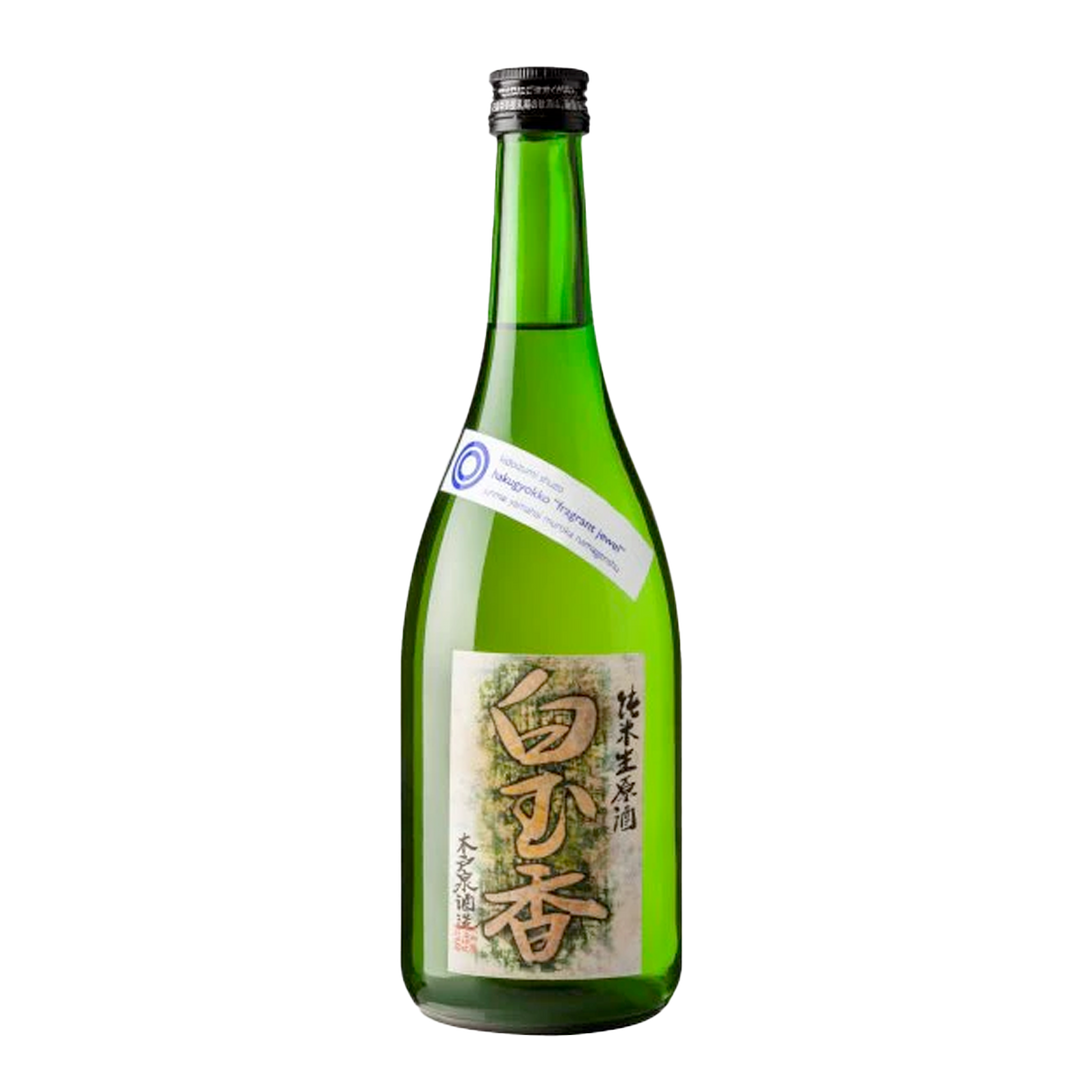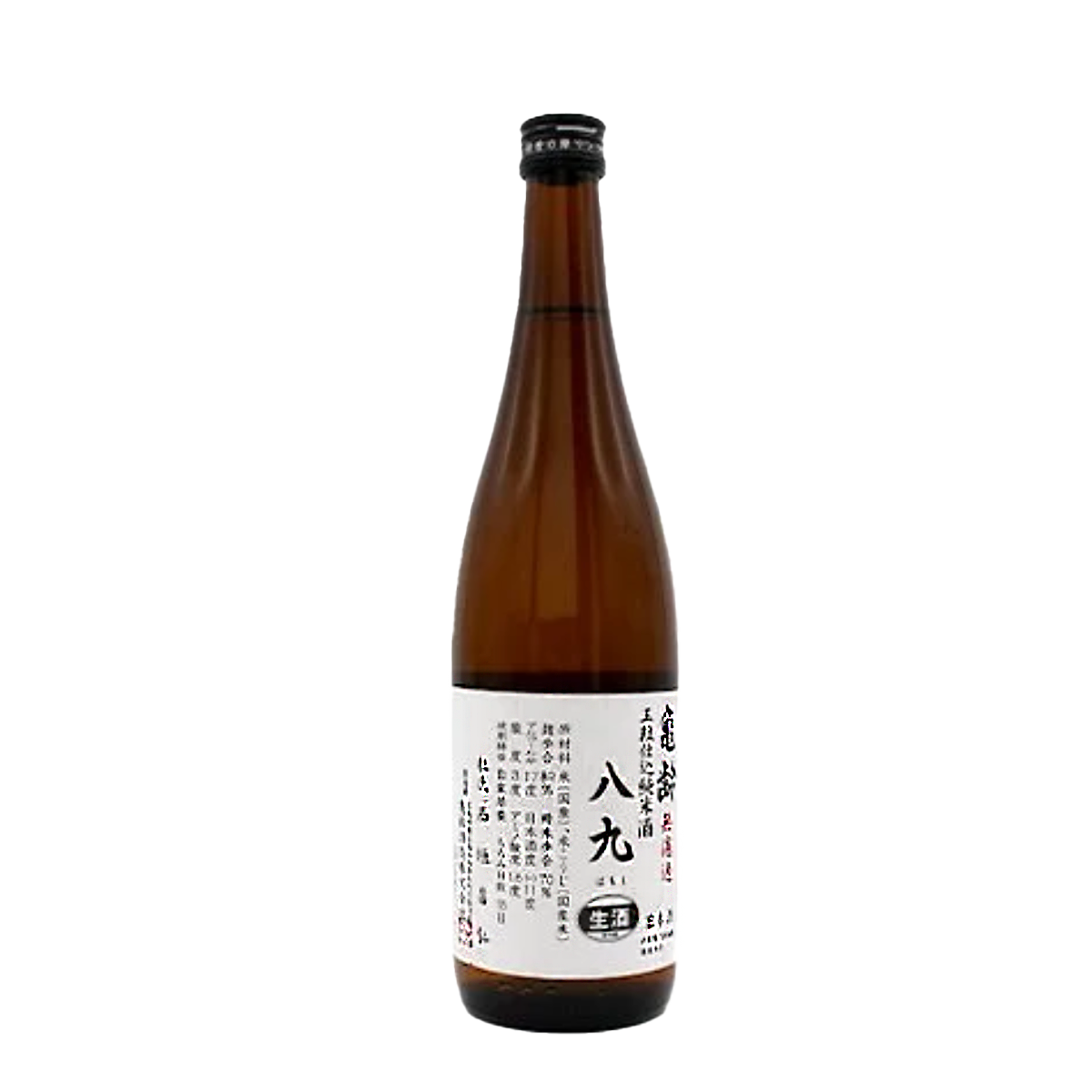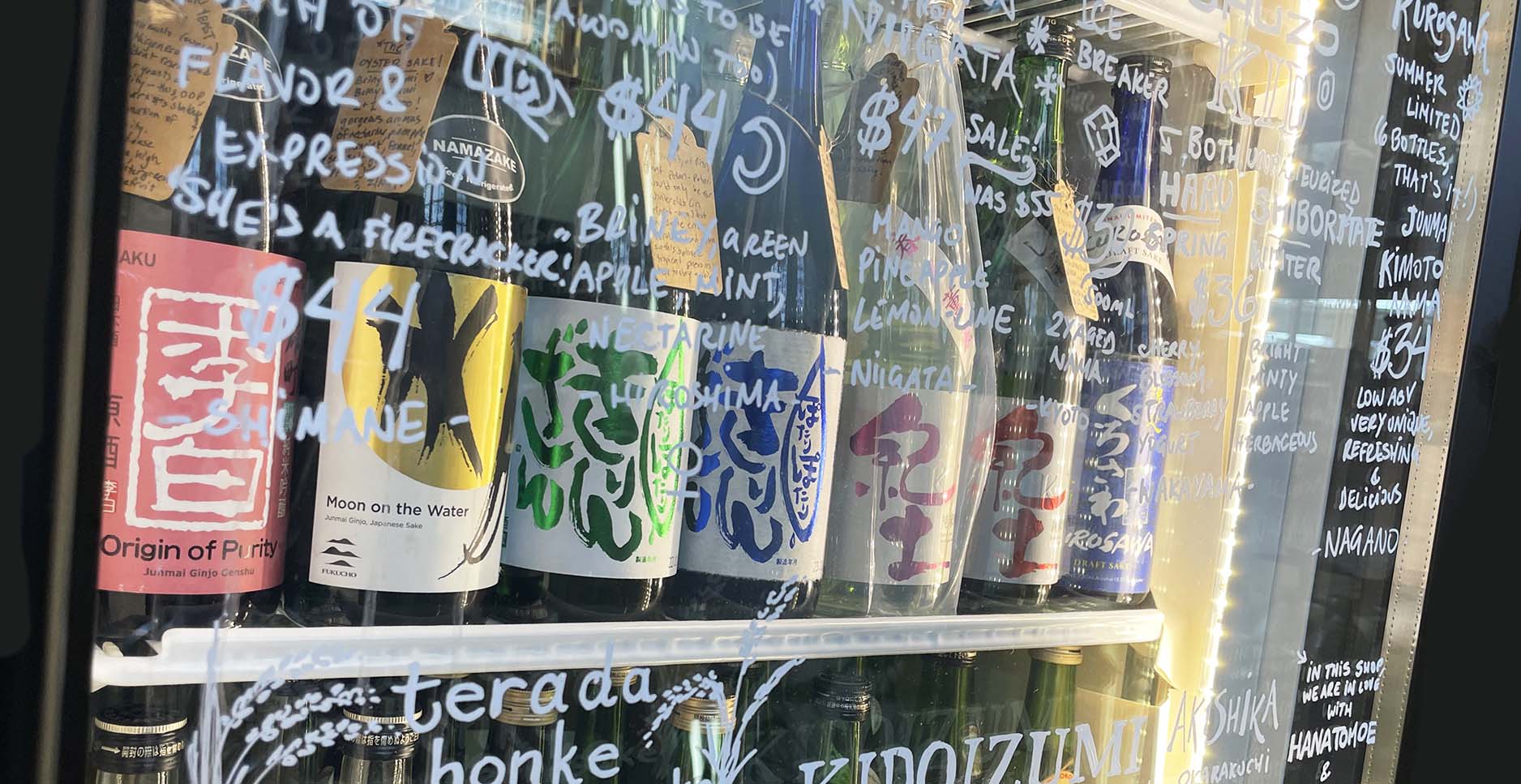
Kidoizumi Hakugyokko Junmai Ginjo Muroka Nama Genshu, "Fragrant Jewel"
- In stock, ready to ship
Hakugyokko is full bodied and densely concentrated: high acidity, high flavor intensity, high minerality and astringency with a long finish, but on the palate it's not cloying or heavy... it drifts across the tongue. If you're familiar with other Kidoizumi products, this Yamadanishiki brew rests somewhere between Kidoizumi "Gold Label" and "Pink Label" stylistically. A bit of the fruity, jammy qualities of pink label, and a bit of the mushroomy, aged pungency of gold label. Unlike Gold Label, Hakugyokko is made with Hyogo Yamadanishiki rice and not aged at the brewery before release; Gold Label is made with Saitama organic Yamadanishiki from a single producer and aged before release.
Still, Hakugyokko is suitable for age. Store at cellar temps and check on it every few years. Time brings out kaleidoscopic, wild and chewy notes of salted cajeta, buttered sweet potato, miso, honeydew melon, dried mango, shiitake mushroom, gjetost, fig jam, caramelized onion, and milk chocolate.
Rice Type: Yamadanishiki (Hyogo)
Rice Polishing: 60%
Grade: Junmai Ginjo Muroka Nama Genshu
ABV: 18-19%
Yeast: Natural (pied de cuvee using ambient source)
SERVE: Chilled, room temp, lightly warmed (once the sake has been open a few weeks and settled out)
Chiba prefecture lies between Tokyo Bay and the Pacific Ocean, a verdant area traditionally known for prolific farming. The Kuroshio (“black salt”) current flows around Chiba’s shores, which keeps it relatively warmer in winter and cooler in summer than neighboring Tokyo.
Kidoizumi was founded in 1879, and is currently run by the fifth generation owner-toji of the Shoji family, Hayato Shoji. It is the only brewery in Japan that uses the Hot-Yamahai method, developed by Hayato’s grandfather in the 1950s. In a traditional yamahai sake the starter of the sake is left exposed to the air for several days to naturally develop lactic acid, and needs cool temperatures to avoid getting contaminated by unwanted bacteria. Despite its location in relatively warm Chiba, Kidoizumi developed a method where large amounts of lactic acid producing bacteria are cultivated on the premises are added to a starter kept at very high temperature.
The result is a unique full bodied, multi-layered taste which is completely unique to their brewery. Their namazake (unpasteurized sake) has a unique combination of acidity and sweetness, complex floral notes and a rich mouthfeel. Because of the unique method of production, it is a very stable sake once opened. It pairs excellently with bold flavors and has a special magic with grilled meats.
In addition Kidoizumi are proud to use locally grown rice that meets their standards, embracing traditional growing techniques and banning the use of chemical fertilizers. They were one of the first pioneers for the organic movement in Japan, skirting the rules during the decades when the government controlled all rice sales and production methods. We like their rebellious spirit and are glad they applied it to sake making!
Incredibly versatile with highly flavorful international cuisine. Born to pair with the chaos dishes from Portland's Malka (RIP), adventurous diners may try cheddar-apple pie,
smoky tacos guisados, or Raclette, which brings out the sake's spicy, Christmasy side.



